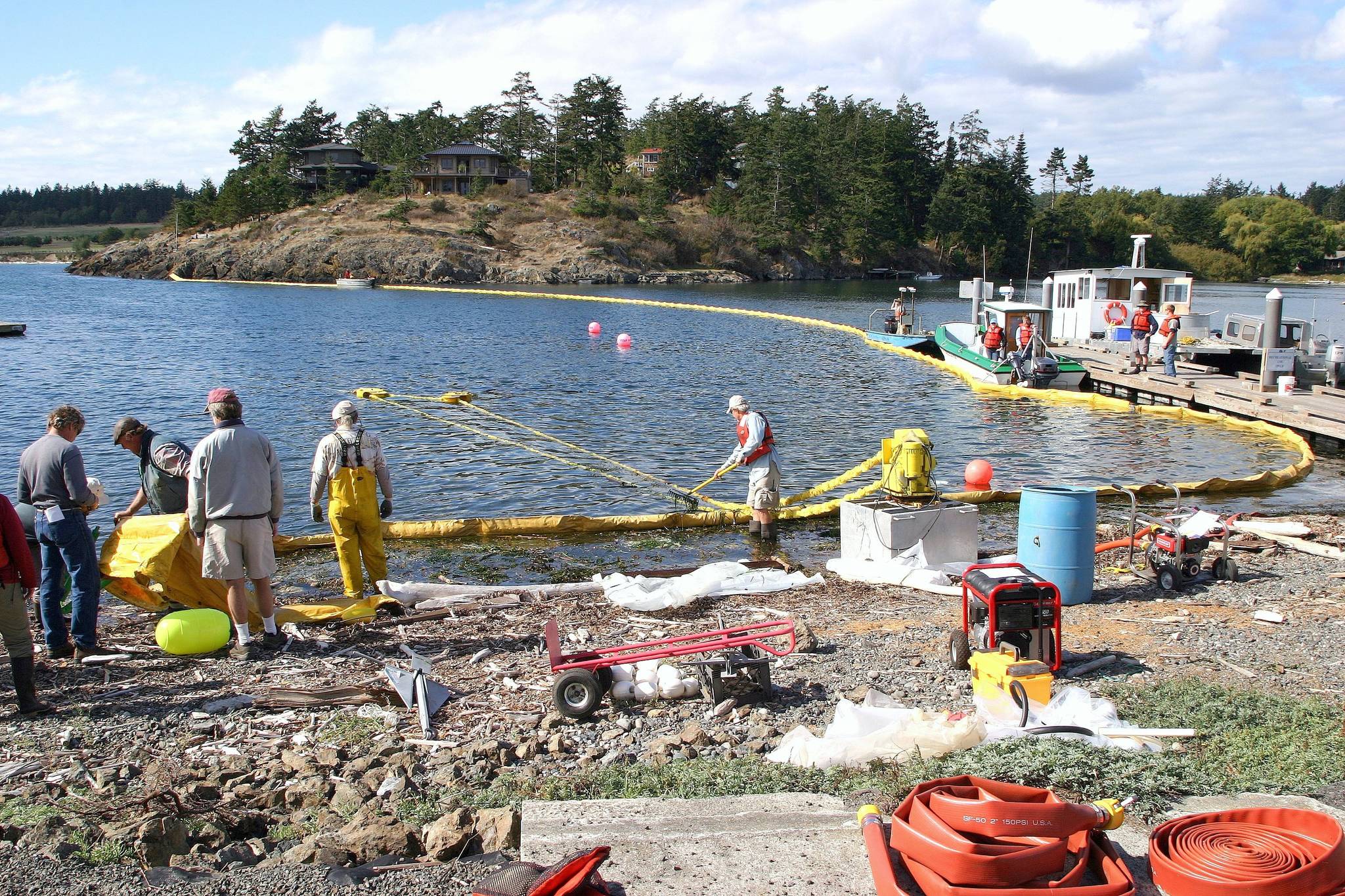Submitted by SJC DEM
In Eastsound on Feb. 26, nearly 30 people from a range of backgrounds and skillsets gathered for the second monthly meeting of the 2019 Islands’ Oil Spill Association Action Team. This group of interested volunteers has been working tirelessly since the beginning of the year in an effort to revitalize IOSA’s ability to respond to both large and small marine pollution events.
Over the last 30 years, literally hundreds of dedicated individuals have given their time to build and support IOSA, including founder Julie Knight and longtime staff members Jackie Wolf and Robyn Albro. IOSA is a nationally recognized grassroots organization, built from the ground up and with a remarkable record of providing professional spill response in the San Juan Islands and beyond.
When recent challenges required IOSA to step back from its ability to provide 24/7 coverage, an opportunity arose to pause, take a close look at IOSA’s mission and structure and put in the work to build a foundation that will see the organization through for many decades to come. This is the work of the 2019 IOSA Action Team.
“We’re blessed to have such an experienced and committed group,” said IOSA board President Ken Carrasco, “and I’m excited about the progress we’ve made and what the future holds.”
As Carrasco notes, a wide range of concerned citizens have stepped in to get involved. The entire IOSA board, county government staff, numerous citizen volunteers, islanders, mainland experts, and representatives from local ports, libraries, nonprofits and industry are all filling key roles on the Action Team. The work is complex, and discussion at last week’s energetic Orcas Island meeting ranged from financial planning to vessel safety to the long-term structure of IOSA’s board of directors.
San Juan County Emergency Management Director Brendan Cowan is filling the role of team coordinator and is using basic emergency response principles to guide the effort. “We’re using the same approach we’d use on an actual spill, or any other emergency,” explained Cowan, and “everyone involved has a specific role, and we carefully track our work on a weekly basis.”
After a month of steady effort, progress is visible. An assessment of all existing equipment is well underway; a close look at organization structure is nearly complete; and plans are being made for recruitment and training of new and existing volunteers. Efforts are being made to stabilize and secure IOSA’s finances, and work to establish a sustainable and well-supported organization is gathering steam.
“We’ve got a long ways to go,” said Action Team Operations Chief (and Lopez Fire Chief) J. Havner, “but I’m confident that when we look back at the end of this year, we’re going to feel great about the longterm future of IOSA.”
Board Vice President Kai Sanburn echoed those thoughts: “IOSA is a unique island resource, and to truly support local spill response is one way to make sure we’re doing all we can to protect our home. It’s a passionate group working on this, and we’re excited to begin to show our community where we’re headed.”
IOSA is hosting a series of information meetings in April to provide more details on the effort and on what is involved in being an IOSA volunteer:



